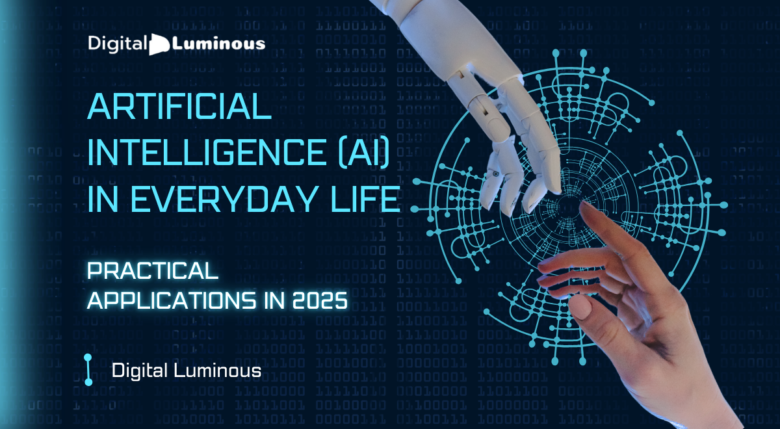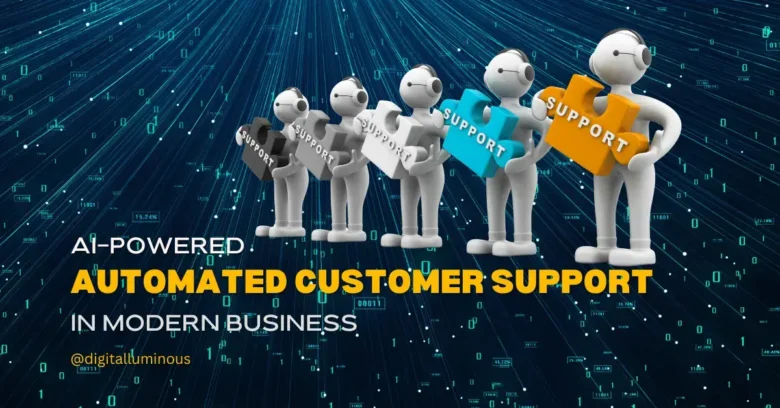
The integration of Artificial Intelligence (AI) into SEO (Search Engine Optimization) has revolutionized how businesses enhance their online visibility and engage with users.
This evolution has made SEO more precise, efficient, and effective, leveraging AI’s ability to analyze vast amounts of data and adapt to changing user behaviors.
In this blog, we will explore the various facets of AI in SEO optimization, its benefits, and practical steps for incorporating AI into your SEO strategy, with a focus on examples relevant to the United States.
What is AI in SEO Optimization?
AI in SEO optimization refers to the use of machine learning algorithms and natural language processing (NLP) to enhance various aspects of SEO, such as keyword research, content creation, and technical SEO audits.
AI-driven tools can analyze data, identify patterns, and make recommendations that help improve website rankings on search engines.
Example: The USA based e-commerce company uses AI-powered tools like Ahrefs and SEMrush to conduct comprehensive keyword research. These tools analyze search trends and user intent to recommend high-potential keywords, allowing the company to optimize its product pages and drive more organic traffic.
The Rise of AI in SEO Optimization
- Transformation of SEO Practices:
AI has significantly transformed SEO practices over the past decade, introducing more advanced techniques and tools for optimization.
- AI-Powered Algorithms:
The advent of AI-powered algorithms, such as Google’s RankBrain and BERT, has enhanced search engines’ ability to understand the context and intent behind user queries.
- Focus on Context and Intent:
These AI algorithms prioritize understanding user intent and context, moving away from simple keyword matching to more sophisticated interpretations of search queries.
- High-Quality Content Emphasis:
The shift has moved the focus from keyword stuffing to creating high-quality, relevant content that genuinely addresses user needs and questions.
- Enhanced User Experience:
By leveraging AI, search engines can provide more accurate and useful results, enhancing the overall user experience and satisfaction.
Example: Digital Marketing Agency in the United States adopted Google's BERT algorithm to refine its content strategy for a national healthcare provider. By focusing on user intent and context, the agency improved the provider's search rankings for critical health-related queries, resulting in a 30% increase in organic traffic.
Foundations of AI in SEO Optimization

- Machine Learning:
AI uses machine learning algorithms to learn from historical data, predict outcomes, and continuously improve SEO strategies over time.
- Natural Language Processing (NLP):
NLP enables AI to analyze and understand human language, essential for optimizing content based on user queries and ensuring relevance.
- Data Analysis:
AI excels at analyzing large datasets to identify patterns, trends, and insights that inform effective SEO tactics.
- Predictive Analytics:
AI employs predictive analytics to forecast future trends and user behaviors, allowing for proactive adjustments in SEO strategies.
- Content Optimization:
AI tools use NLP and data analysis to suggest keyword usage, content structure, and topics that align with user intent and search engine algorithms.
For instant, A leading USA based travel website used AI for competitor analysis. By leveraging AI tools to analyze competitors' keywords, backlink profiles, and content strategies, the website identified gaps and opportunities, leading to a 25% increase in organic search visibility.
The Benefits of Using AI for SEO Optimization

AI has revolutionized SEO by providing a range of advantages that enhance efficiency, insights, content quality, and overall return on investment.
- Increased Efficiency:
AI automates repetitive tasks, such as keyword research, technical audits, and performance tracking. This allows marketers to focus on more strategic and creative aspects of their work.
Example: The U.S.A based digital marketing firm uses AI tools to automate its keyword research process. By doing so, the firm has reduced the time spent on manual research by 50%. This efficiency gain allows the team to dedicate more time to developing creative campaigns and strategic planning, ultimately enhancing their competitive edge in the market.
- Deeper Insights:
AI can quickly analyze large datasets to uncover actionable insights, including user behavior patterns, emerging trends, and content performance metrics.
Example: An American retail giant employed AI to analyze customer search behavior on their website. The AI system identified trends and preferences that were not immediately apparent through manual analysis. This insight led to the creation of personalized product recommendations for each user, which increased overall sales by 20%. This personalized approach not only boosted revenue but also improved customer satisfaction and loyalty.
- Improved Content Quality:
AI assists in creating content that is not only optimized for SEO but also engaging and relevant to the target audience. It can suggest topics, optimize keywords, and ensure the content aligns with user intent.
Example: The United States based educational platform implemented AI to generate content outlines and optimize existing articles. The AI analyzed search queries, user feedback, and content gaps to suggest improvements. As a result, the platform saw a 35% boost in organic traffic from educational searches, making it a go-to resource for students and educators alike.
- Better ROI:
By optimizing SEO efforts through AI-driven insights, businesses can achieve higher search rankings, increased website traffic, and improved conversion rates, all of which contribute to a better return on investment (ROI).
Example: A fintech American company integrated AI-driven SEO strategies to optimize its website content and structure. The AI tools helped identify the most effective keywords, refine meta tags, and enhance user experience. This led to a 40% increase in lead generation and significantly improved the company's ROI, making their digital marketing efforts much more cost-effective and impactful.
- Enhanced Personalization:
AI enables the creation of highly personalized user experiences by analyzing user data and behavior. This leads to more targeted content and product recommendations, which improves engagement and conversion rates.
Example: A major U.S.A online retailer utilized AI to personalize search results and product recommendations based on individual user preferences and browsing history. This personalized approach led to a 25% increase in the average order value, as customers were more likely to find and purchase products that matched their interests.
- Real-Time Performance Monitoring:
AI tools provide real-time insights and make adjustments to SEO strategies as needed. This ensures that SEO efforts remain effective and can quickly adapt to changes in search engine algorithms or user behavior.
Example: The U.S.A real estate website implemented AI-driven real-time monitoring to track the performance of its SEO tactics. The AI system dynamically adjusted keyword targeting, content updates, and backlink strategies based on real-time data. This proactive approach resulted in a 15% improvement in search rankings, ensuring the website stayed ahead of competitors and maintained high visibility.
Getting Started: Steps to Incorporate AI into Your SEO Strategy

Incorporating Artificial Intelligence (AI) into your SEO strategy can significantly enhance efficiency and effectiveness. Here are practical steps tailored for U.S. businesses to get started with AI in SEO:
- Assess Your Needs:
Identify specific areas where AI can add the most value to your SEO efforts, such as keyword research, content creation, or PPC optimization.
Example: A U.S.A fashion retailer identified that AI could improve keyword research and content strategy to better target fashion trends and customer preferences.
- Research AI Tools:
Explore AI-powered tools and platforms that align with your SEO objectives. Consider features, pricing, scalability, and user reviews to find the best fit.
Example: The United State based tech startup researched various AI tools and selected SEMrush for its comprehensive SEO capabilities and intuitive interface.
- Evaluate Tool Compatibility:
Ensure the AI tools you choose integrate seamlessly with your existing systems, such as CMS (Content Management System) and analytics tools.
Example: An American non-profit organization evaluated AI tools for compatibility with its WordPress CMS and Google Analytics setup to streamline implementation.
- Tool Familiarization:
Utilize tutorials, documentation, and support resources provided by AI tool providers to train yourself and your team on using the tools effectively.
Example: The USA marketing agency conducted workshops to train its staff on using AI tools like BrightEdge for SEO optimization, ensuring everyone was proficient in leveraging AI capabilities.
- Integration and Implementation:
Gradually integrate AI tools into your workflow, starting with small-scale implementations. Monitor performance and refine your approach based on initial results.
Example: A healthcare provider in United States began with AI for technical SEO audits and expanded to content optimization after observing positive impacts on search engine rankings.
- Set Clear Objectives and KPIs:
Define clear objectives and Key Performance Indicators (KPIs) to measure the success of your AI-enhanced SEO strategies. This helps track progress and adjust strategies as needed.
Example: The U.S.A based online learning platform set KPIs such as increased organic traffic and higher engagement rates to gauge the effectiveness of AI-driven SEO efforts.
- Monitor and Optimize:
Continuously monitor the performance of AI-driven SEO activities. Use insights gathered to optimize strategies and improve outcomes over time.
Example: A fitness app provider in America regularly reviewed AI-generated data to refine SEO tactics, ensuring they remained aligned with current industry trends and user behaviors.
- Stay Updated with AI Trends:
Stay informed about the latest AI trends and advancements in SEO through industry conferences, webinars, and reputable publications.
Example: A media company actively participated in industry events to stay updated on AI innovations in SEO, gaining insights into new strategies and technologies.
- Evaluate ROI:
Periodically evaluate the Return on Investment (ROI) of your AI-powered SEO strategies to ensure they are delivering expected benefits and adjust strategies accordingly.
Example: E-commerce site regularly assessed the ROI of its AI-driven SEO efforts, optimizing strategies to maximize profitability and achieve business goals.
- Seek Continuous Improvement:
Foster a culture of continuous improvement within your team by gathering feedback and integrating new AI capabilities as they become available.
Example: The USA based financial services firm encouraged ongoing improvement by updating its AI tools and strategies based on team feedback, ensuring they remained at the forefront of SEO innovation.
Conclusion
The evolution of AI in SEO optimization has empowered businesses in the United States to enhance their online presence with greater precision and efficiency.
By integrating AI into their SEO strategies, companies can stay competitive, deliver personalized user experiences, and achieve superior results.
As AI technology continues to advance, its role in shaping the future of SEO will only grow, offering even more innovative solutions and opportunities for businesses to thrive in the digital age.
FAQs
AI in SEO optimization refers to the use of artificial intelligence technologies like machine learning and natural language processing to improve search engine rankings and enhance user experience.
AI helps in SEO by automating tasks like keyword research, optimizing content, analyzing data, and predicting user behavior, leading to more effective and targeted strategies.
Examples include SEMrush, Ahrefs, Google’s BERT and RankBrain, which aid in keyword analysis, content optimization, and understanding search intent.
AI enhances the capabilities of SEO professionals by automating repetitive tasks and providing valuable insights, but human expertise is still crucial for strategy development and creativity.
AI analyzes search patterns and user intent to suggest relevant keywords and long-tail phrases, helping businesses target their audience more effectively.
AI tools can generate content outlines, recommend topics, optimize existing content for SEO, and even produce natural language text, supporting content strategy and quality improvement.
AI uses natural language processing to ensure content is optimized for SEO parameters while being engaging and relevant to the target audience, improving readability and search rankings.
Benefits include increased efficiency, deeper insights from data analysis, improved content quality, better ROI through optimized strategies, enhanced personalization, and real-time performance monitoring.
Yes, AI tools can conduct comprehensive technical SEO audits to identify issues such as broken links, site speed problems, and mobile responsiveness issues, which can affect search rankings.
AI optimizes PPC campaigns by analyzing data to refine ad placements, target audiences more accurately, adjust bidding strategies in real-time, and maximize ROI.
Yes, AI can analyze local search trends, optimize content for local keywords, and improve local business listings, enhancing visibility in local search results.
AI tools can analyze competitor SEO strategies, keywords, and backlink profiles, providing insights to refine your own SEO tactics and stay competitive.
AI can personalize content recommendations, optimize site navigation based on user behavior, and enhance page loading speeds, resulting in a more satisfying user experience.
Yes, AI algorithms like BERT help search engines understand natural language queries better, which is crucial for optimizing content and SEO strategies for voice search.
Challenges include the initial cost of AI tools, ensuring data privacy and security, integrating AI with existing systems, and staying updated with rapidly evolving AI technologies.
Success can be measured through KPIs such as organic traffic growth, keyword ranking improvements, conversion rates, and ROI from SEO campaigns tracked using analytics tools.
Yes, AI tools come in various scales and budgets, making them accessible to small businesses. They can help optimize SEO efforts efficiently even with limited resources.
Results vary based on the implementation and competitiveness of the industry. Typically, initial improvements can be observed within a few months, with ongoing refinements leading to sustained growth.
Ethical considerations include transparency in AI usage, ensuring fairness and non-discrimination in algorithms, respecting user privacy, and using AI responsibly in content creation and optimization.
Yes, integrating AI into SEO strategies is a long-term investment as it continually evolves to meet changing search engine algorithms and user behaviors, providing ongoing benefits in efficiency and effectiveness.


